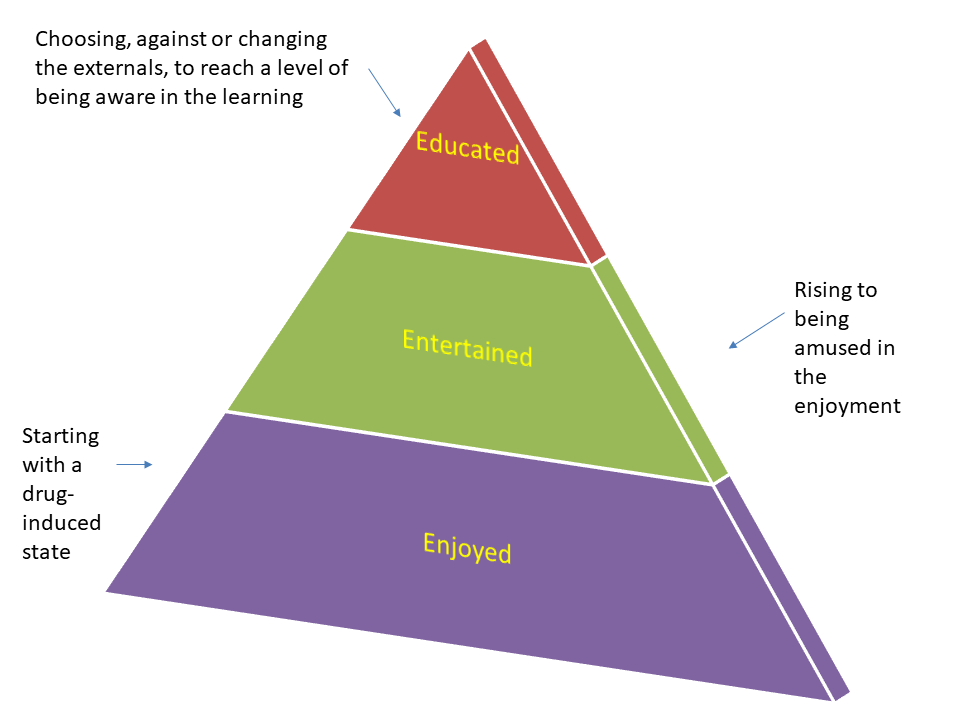
Buch’s Pyramid Of Social Personal Development
Most of us are bound to a work routine, where evaluation of the time is beyond our agency – we do what we do because…many external reasons beyond our control.
BUT…
For their leisure hours, most persons, for most amount of time, do not go beyond enjoyment. There is a drug-induced state, natural mechanisms of the human body, whether added to by pharmaceutical or leisure (alcohol and other pain-killing habits) substances or not.
The better side of humanity rises to another level. There is some effort towards entertainment, which is a state of being amused and having passed the time more enjoyable than the drug-induced state. It is a state of the emergent consciousness in deliberate judgement. Unfortunately, less of the population rise to this level.
The even better side of humanity, although fewer reach this level, is the state of being educated. It is the emergent consciousness in deliberate judgement, as also to be entertained, but it has the added dimension of critical awareness, the awareness that, I as a person, have learnt something.
One of the problems in Mill’s pleasure principle is that pleasure is obtained at all three levels. Pleasure becomes meaningless if it is all things. Mill did try to resolve the problem with his pig satisfied and Socrates unsatisfied principle, but the argument appears to demonstrate that pleasure is not sufficient, even if we have Socrates with unsatisfied pleasure. The same problem exists for the concept of happiness in the American constitutional writers’ argument on what happiness is for the sake of governance. Buch’s Pyramid of Social-Personal Development shows what is missing in the understanding of the rising to the better level of humanity.
It may be educatively elitist, but with the bounded work routine, externally imposed, there is choice. It is the choice of resistance and dissent. Hence, the invitation for both changes in the externals and the internal reasoning.
Neville Buch
Latest posts by Neville Buch (see all)
- Dear grossly, ethically, corrupted - December 21, 2024
- Thoughts with a Professional History colleague on “Artificial Intelligence” - December 21, 2024
- Stephanie M. Lee on “AI by omission”, The Chronicle of Higher Education, Thursday, December 19, 2024 - December 20, 2024
